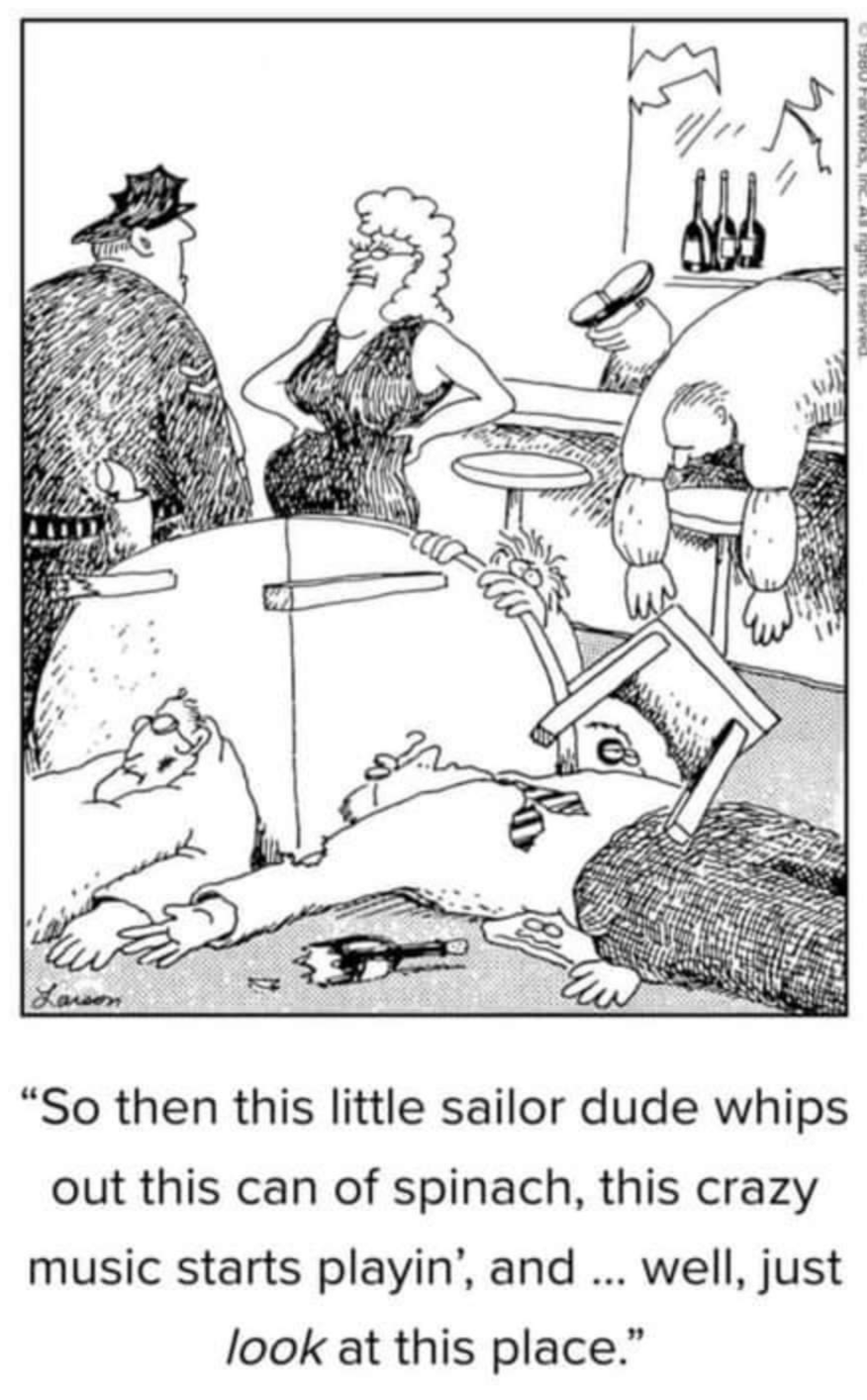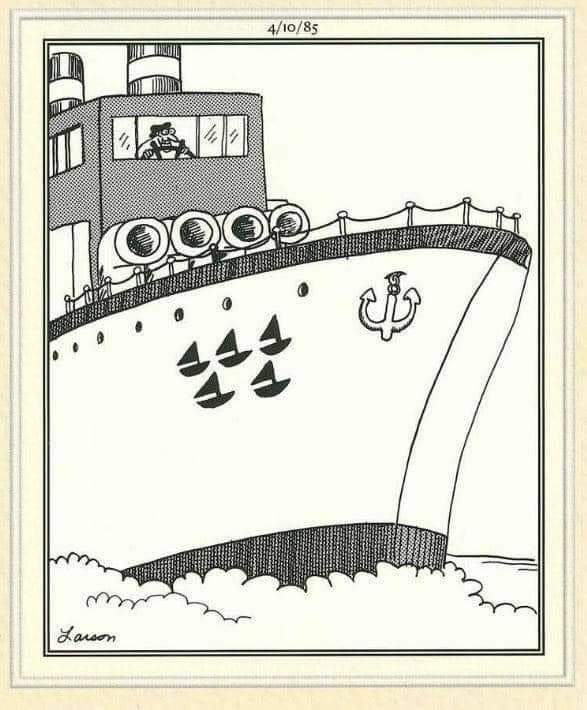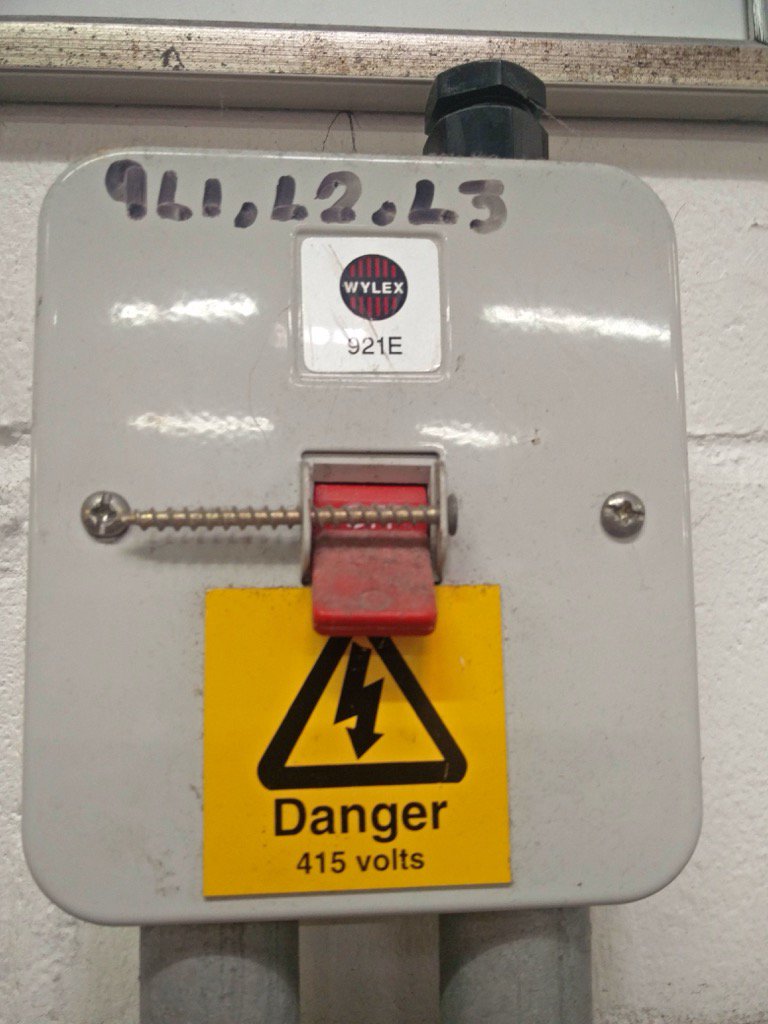 The Officer's Lounge
The Officer's Lounge
...funny tales from the sea
Marine Engineers have a
reputation of being direct, methodical, dry - even boorish. After all, spending
four hours clearing the 265 pounds of mussels from the strums boxes does,
sometimes, give that appearance. The Officer's Lounge on www.dieselduck.net is a little place
online for ship's crew to relax and laugh, as we explore marine and engineering
lore.
Seaman, with their inherent sense of order, service, and discipline, should really be running the world.
-Anonymous
I would like to submit to the rest of the world that, yes being methodical,
careful, even maybe - anal, isn't the best of reputation for a profession. But
it's the attention to details that makes great engineers. Really, it is !
This
area is here to
- to make you an engineer with a sense of humor
- cheer up your day
- make you the talk of the ship - "you da man"
- make fun of deckies - I know that's too easy, but...
- make marine engineers into social butterflies - well...ok. maybe not
...and we do that by...
- Play practical jokes on unsuspecting mates
- Telling jokes
- Learning about seafaring lore and culture
- Telling funny stories about seafaring
- Learn about "nerdy" stuff
Who's more important
A Captain and Chief Engineer were having the age old argument about who had
the tougher job. Each believed they could perform the others duties without a
problem. To prove this to each other they decided to swap positions while
leaving port the next morning. The next morning the Captain took over the watch
from the second engineer after all the machinery had been brought up.
The
Chief took over the watch on the bridge from the mate once clear of the dock. It
wasn't long before the Captain found things to be going wrong; all the machinery
temperatures were rising to dangerous levels.
The Captain quickly called
the bridge where the Chief answered.
Captain : Chief, you'd better get
down here quickly. I'm about to lose all of the machinery!
Chief : Relax
Captain, we just ran aground!
Dear Abby,
I have two brothers, one is a
marine engineer and the other was just sentenced to death for killing a nun. My
mother died of insanity when I was three. It seems to run in the family. My
father sells drugs to kids. My two younger sisters are prostitutes. My former
girlfriend died of AIDS. I`ve met this girl who was just released from
prison.... (she smothered her illegitimate child ).
I love her very much
and want to marry her. My problem is this. Should I tell her about my brother
who is a marine engineer?

WHY I WANT TO BE A SHIP CAPTAIN*
"I want to
be a Ship Captain when I grow up because it's a fun job and easy to do. Captains
don't need much school education; they just have to learn numbers so they can
read instruments. I guess they should be able to read maps so they won't get
lost.
Captains should be brave so they won't be scared if its foggy and
they can't see; or if the propeller falls off they should stay calm so they know
what to do. Captains have to have eyes to see through the clouds and they can't
be afraid of thunder or lightning because they are closer to them than we are.
The salary that Captains make is another thing I like. They make more money
than they can spend. This is because most people think captaining ships is
dangerous, except captains, because they know how easy it is. There isn't much I
don't like, except girls like captains and all the girls want to marry a captain
so they always have to chase them away so they won't bother them.
I hope
I don't get sea sick because I get car sick and if I get sea sick I could not be
a Captain and then I would have to go out and work."
Written by a 10 year old schoolboy
Acknowledgements to the Journal of the AMOU, the IFSMA
Newsletter and Bow Wave, Vol. 6, Jan '95, Issue 1

Off watch and need some ideas what book to read?
Well then
here are some nautical/marine themed books to look up next time your at your
favourite library or bookstore.
- Supership - Noel Mostert
- In Hazard - Richard Hughes
- The Sea and the Jungle - H. M. Tomlinson
- The Serpent's Coil - Farley Mowat
- Gray Seas Under - Farley Mowat
- Shalimar - Capt. F.C.Hendry
- Return of The Coffin Ships: The Derbyshire Engima
- Das Boot: The Boat - Lothar-gunter Bucheim
- Lord Jim, Youth, Typhoon, Mirror of the Sea, End of the Tether, Nigger of the Narcissus, Heart of Darkness - Joseph Conrad
- Sea Wolf, Mutiny On the Elsinore - Jack London
-
 White Jacket, Redburn, Moby Dick -
Herman Melville
White Jacket, Redburn, Moby Dick -
Herman Melville - Voyage, Wanderer - Sterling Hayden
- Captain - Jean De Hartog
- Wreck of the Mary Deare - Hammond Innes
- The Cruel Sea - Nicholas Monsarrat
- Hairy Ape, Thirst, Long Voyage Home - sea plays by Eugene O'Neill
- The Caine Mutiny - Herman Wouk
- Islands In the Stream, To Have and Have Not - Ernest Hemingway
- Tales of the South Pacific, Return to Paradise - James Michener
- The Bounty Trilogy - Mutiny On the Bounty, Men Against the Sea, Pitcairns Island - Nordhoff and Hall
- The African Queen - C.S. Forester
- The Brassbounder - David Bone
- H.M.S. Ulyses - Alistair MacLean
- The Riddle of the Sands - Erskine Childers
- The Oxford Book of the Sea, The Oxford Book of Sea Stories
- Slow Boat to China, Slow Boat Home, In Search of Conrad - Gavin Young
- Ride out the Storm - Roger Vercel
- Seamans Bible, Para Handy Tales - Niel Munro
- The Wreck of the Grosvenor - W. Clark Russell
- The Perfect Storm: A True Story of Men Against the Sea - Sebastian Junger
- Looking for a ship - John McPhee
- High Seas High Risk: The Story of the Sudburys (Seaspan history) - P. W. Norris
- San Andreas - Allistar MacClean
- Highliner - William McCloskey
- Moby Dick, by Herman Melville
- The Old Man and the Sea, by Ernest Hemingway
- Captains Courageous, by Rudyard Kipling
- Bird of Dawning, by John Masefield
- The Wreck of the Grosvenor, by W. Clark Russell
- Lord Jim, by Joseph Conrad
- The Distant Shore, by Jan de Hartog
- Delilah, Marcus Goodrich
- Treasure Island, Robert Louis Stevenson
- Gallions Reach, by H.M. Tomlinson
- Captain Blood, Rafael Sabatini
- H.M.S. Ulysses, Alistair MacLean
- The Wreck of the Mary Deare, Hammond Innes
- A Prayer for the Ship, Douglas Reeman
- Mister Roberts, Thomas Heggin
- Submerged, Edward Ellsberg
- Call of the Offshore Mind, Ralph Paine
- Blood Knot, Sam Llewellyn
- The Hunt for Red October, Tom Clancy
- Voyage, Sterling Hayden
- River Queen (story of Lucille Macdonald of Rivtow) by Levi
- The Sand Pebbles by Richard McKenna
- The Sons of Martha and Other Stories by Richard McKenna. "Of particular note is "King's Horsemen". That one will keep you flipping pages." Writes Tom W.
- "Uncommon Carriers" by John McPhee. These were collected from his "Annals of Transportation" stories in "The New Yorker" magazine
- Seized by Max Hardberger
- A Captain's Duty - Richard Philips (of the Mearsk Alabama)
- The Box: How The Shipping Container Made The World Smaller and the World Economy Bigger" by Marc Levinson (excellent book)
He who goes to sea for pleasure would go to hell for a pastime.- Samuel Johnson
These are actual evaluation comments of an employee...
- "...since my last report, this employee has reached rock bottom and has now started to dig."
- "...when he opens his mouth, it seems that it is only to change change foot."
- "...donated his brain to science before he had finished with it."
- "...if you gave this employee a penny for his thoughts, you'd get change."
- "...if you stand close enough to her, you can hear the sea."

The Store
Keeper
We were deploying to the Gulf. Time was tight, tempers short. One
of our fire-pumps was playing up, the suction strainer was knackered, and needed
to be replaced. I knew we carried one, and authorized it to be drawn from the
stores. Now, I know that a Store's called a Store because it's for storing
things in, and if it was meant for issuing things from it'd be called an Issue,
but......
15 minutes later, I got a call from the chief of section. The
Dusties wouldn't release it. I went down to find out why. With dead-pan face and
irrefutable logic, I was told "Yessir, I've got the part. Nossir, you can't have
it. 'Cos I've only got one, and if I give it to you I won't have any left.
Wot'll I do if someone wants one then?"
I'll leave what happened next to your
imagination, but the fire pump worked fine after that.
Submitted by Chris
Hartwell

Experience pays
There was an engineer who had an
exceptional gift for fixing all things mechanical. After serving his company
loyally for over 30 years, he happily retired. Several years later the company
contacted him regarding a seemingly impossible problem they were having with one
of their multimillion-dollar machines. They had tried everything and everyone
else to get the machine to work but to no avail.
In desperation, they
called on the retired engineer who had solved so many of their problems in the
past. The engineer reluctantly took the challenge. He spent a day studying the
huge machine. At the end of the day, he marked a small "x" in chalk on a
particular component of the machine and stated: This is where your problem is".
The part was replaced and the machine worked perfectly again. The company
received a bill for $50,000 from the engineer for his service. They demanded an
itemized accounting of his charges.
The engineer responded briefly: One
chalk mark: $1.00 Knowing where to put it: $49,999.00.
It was paid in
full and the engineer retired again in peace.

FROM A SHIP'S MASTER:
It is with regret and
haste that I write this letter to you: regret that such a small misunderstanding
could lead to the following circumstances, and haste in order that you will get
this report before you form your own opinions from reports in the world press. I
am sure that they will tend to over-dramatize the affair.
We had just
picked up the pilot, and the apprentice had returned from changing the "G" flag
for the "H" and, it being his first trip, was having difficulty in rolling the
"C" flag up. I therefore proceeded to show him how. Coming to the last part, I
told him to "let go." The lad, although willing, is not too bright,
necessitating my having to repeat the order in a sharper tone.
At this
moment, the Chief Officer appeared from the chart room, having been plotting the
vessel's progress, and, thinking that it was the anchor that was being referred
to, repeated the "let go" to the third officer on the forecastle.
The
port anchor, having been cleared away but not walked out, was promptly let go.
The effect of letting the anchor drop from the hawse pipe while the vessel was
proceeding at full harbour speed proved too much for the windlass brake, and the
entire length of the port cable was pulled out. I fear the damage to the chain
locker may be extensive. The braking effect of the port anchor naturally caused
the vessel to sheer to port, right towards a swing bridge that spans the river
up which we were proceeding.
The swing bridge operator showed great
presence of mind by opening the bridge for my vessel. Unfortunately, he did not
think to stop the vehicular traffic, the result being that the bridge partly
opened and deposited a car, two cyclists and a cattle truck on the foredeck. My
ship's company is at present rounding up the contents of the latter, which from
the noise I would say are pigs. In his efforts to stop the progress of the ship,
the third officer dropped the starboard anchor, too late to be of practical use,
for it fell onto the swing bridge operator's control cabin. After the port
anchor was let go and the vessel started to sheer, I gave a double ring full
astern on the engine room telegraph, and personally rang the engine room to
order maximum astern revolutions. I was informed that the sea temperature was 53
degrees and asked if there was to be a film tonight; my reply would not add
constructively to this report.
Up to now I have confined my report to the
activities at the forward end of the vessel. Back aft they were having their own
problems.
At the moment the port anchor was let go, the second officer
was supervising the making fast of the after tug and was lowering the ship's
towing hawser down onto the tug.
The sudden braking effect of the port
anchor caused the tug to run in under the stern of my vessel, just at the moment
when the propeller was answering my double ring for full astern. The prompt
action of the second officer in securing the inboard end of the towing hawser
delayed the sinking of the tug by some minutes, thereby allowing the safe
abandoning of that vessel.
It is strange, but at the very same moment of
letting go the port anchor there was a power outage ashore. The fact that we
were passing over a "Cable Area" at that time might suggest that we may have
touched something on the river bed. It is perhaps lucky that the high-tension
cables brought down by the foremast were not live, possibly being replaced by
the underwater cable; but owing to the shore blackout, it is impossible to say
where the pylon fell.
It never fails to amaze me; the actions and
behavior of foreigners during moments of minor crisis. The pilot, for instance,
is at this moment huddled in a corner of my day cabin, alternately crooning to
himself and crying after having consumed a bottle of gin in a time that is
worthy of inclusion in the "Guinness Book of Records." The tug captain, on the
other hand, reacted violently and had to be forcibly restrained by the steward,
who has him handcuffed in the ship's hospital, where he is telling me to do
impossible things with my ship and crew. I enclose the names and addresses of
the drivers and insurance companies of the vehicles on my foredeck, which the
third officer collected after his somewhat hurried evacuation of the forecastle.
These particulars may enable you to claim for the damage to the railings around
No.1 hold.
I am closing this preliminary report, for I am finding it
difficult to concentrate with the sound of the police sirens and their flashing
lights.
It is sad to think that had the apprentice realized that there is
no need to fly the pilot flag after dark, none of this would have happened.
For the weekly accountability report, I will assign the following casualty
numbers - T/750101 to T/750199 inclusive.
Yours truly,
Capt.
I.M.A.Screwup,
Master.
To the optimist, the glass is half full. To the pessimist, the glass is half empty.
To the engineer, the glass is twice as big as it needs to be.
MORALE, MENTAL STATE CHECKLIST
- A Joyous, enraptured, filled with happiness, etc.
- B Happy-go-lucky, still quite joyous, etc.
- C Trying to be happy, not really joyous, but still smiling a lot.
- D Not happy but not yet grumpy. Inane grin, disenchanted, time to put coat-hanger in gob.
- E A little grumpy. Inane grin now replaced by bared teeth.
- F Sulky & moody. Bared & gnashing teeth with malevolent leer. Drools.
- G Overtly aggressive. Snaps & bites. Spits on deck a lot.
- H Violent outbursts, actively seeks arguments. Facial twitches manifest. Does nasties in other peoples cabins in secret. Breaks coat-hanger while gnashing teeth.
- I Talks & mutters to himself. Pisses in pantry water boiler. Rips arms & legs from teddy bear & hurls into corner.
- J Starts to argue with himself & loses these arguments. General loss of interest in anything constructive. Teddy bear, now minus head, committed to deep six. Swallows remains of coat-hanger.
- K Everything now no longer works right. Runs out of fags, goes on piss. Runs out of nice drinks so starts on all the funny stuff left over from new year. Gets Montezuma's revenge then finds out that some rotter has anointed his bog roll with Sanilav, gets piles cauterized. Vows to wreak horrid revenge on everyone aboard.
- L Pulls himself together a bit and makes an effort to get it fixed. Nearly ready to run it up, Chief says 'take it out again lads', flash metallic grin at Chief while brain goes into Demonic overload.
- M Junior drops bucket of tools on favorite in-growing toenail. Utter oaths aloud. Have great problems in walking about ship, with junior impaled on boot. Get Junior amputated. Foam at mouth. Finish job, go on piss. Revert to A.
What I've learned as I've matured as a Marine Engineer
- I've learned that no matter how much I care, some people are just assholes.
- I've learned that it takes years to build up trust, and it only takes suspicion, not proof, to destroy it.
- I've learned that you shouldn't compare yourself to others - they are more screwed up than you think.
- I've learned that you can keep vomiting long after you think you're finished.
- I've learned that we are responsible for what we do, unless we are celebrities, politicians or a deck officer.
- I've learned that regardless of how great and exciting a new ship is at first, the passion fades, and there had better be a lot of money to take its place.
Without question, the greatest invention in the history of mankind is beer.
Oh, I grant you that the wheel was also a fine invention, but the wheel does not go nearly as well with pizza.
- Dave Barry
Who's in charge...
A chief Engineer I was sailing with, was sharing stories of his time as a cadet on a Russian cargo ship.
He recalls a pompous, green, 3rd Officer who felt that
they should be grateful that he was onboard, we all know the type. The
experienced bosun quickly tuned in to him, and one day was tasked by the Chief
Officer to clean the funnel deck. With instructions in hand, and two seamen to
assist, he proceeds to the bridge and request that the 3rd Officer call the
engine room and have them switch the exhaust system from the funnel to the
underwater - wet system, so they could perform this job.
The Second
Engineer gets the call from the bridge with the order from the 3rd Officer,
knowing full well something was afoot, replied, "sure... that will be a few
minutes". A little while had past, and the 3rd Officer begin to grow angry at
the lack of response to his orders; so he phone the Engine Room again. The
Second Engineer gets an earful on how important it is that he follows his
instructions with immediate dispatch as he is the Officer of the watch and that
non compliance will not be tolerated, and will be reported to the Capt and Chief
Engineer - "so at once, switch over to the underwater / wet exhaust system". The
Second Engineer didn't say anything, as it was obvious who was in charge.
Some time later, the 3rd Officer grew irate with the "lack of respect" and
calls the Chief Engineer to give him an earful about the engine room. Shortly
after, the Captain and political officers (Russian ships had political officer
at the time), come up on the bridge, from either end, expecting to use the
straightjacket. Needless to say the 3rd Officer was quiet for the rest of the
trip.
 A little gem from the Darwin Awards website...
A little gem from the Darwin Awards website...
(1999) A US
Navy safety publication describes injuries incurred while doing don'ts. One page
described the fate of a sailor playing with a multimeter in an unauthorized
manner. He was curious about the resistance level of the human body. He had a
Simpson 260 multimeter, a small unit powered by a 9-volt battery. That may not
seem powerful enough to be dangerous� but it can be deadly in the wrong hands.
The sailor took a probe in each hand to measure his bodily resistance from thumb
to thumb. But the probes had sharp tips, and in his excitement he pressed his
thumbs hard enough against the probes to break the skin. Once the salty
conducting fluid known as blood was available, the current from the multimeter
travelled right across the sailor's heart, disrupting the electrical regulation
of his heartbeat. He died before he could record his Ohms.
The lesson? The Navy issues very few objects which are designed to be stuck into the human body.
August 2000 Dan Wilson elaborates:
I'm a former Navy petty officer,
enlisted for six years as an electrician aboard a US Submarine. I got a lot of
training. This story was used frequently during my training in the US Navy as an
example of what can happen when procedures and safety measures are not followed.
I considered the story an urban legend until I found the incident report
referenced in the official Navy electrical safety guidelines. I now know it is
true.
The actual event is slightly different than described above, and even
more deserving of a Darwin award. This sailor stuck the sharpened ends of the
probes through his thumbs intentionally. You see, he had just taken a course
that taught a critical concept called "internal resistance."
Internal
resistance is resistance to electrical power flow that exists inside any power
source. It causes the terminal voltage to drop when load (current) increases.
You can demonstrate this concept, if you're careful, by monitoring your car
battery's terminal voltage, while someone starts up the engine. The reading will
be ~13 volts while the engine is off, but during the period where the starter is
cranking it will drop to 8-9 volts. The voltage drop is due to the internal
resistance of the battery.
This sailor, like all other electricians in
training, had already been through a safety class in which one of the exercises
is to measure your body's resistance by simply holding the probes between your
fingertips. (Most people read 500Kohms to 2Mohms.) Evidently, adding information
from the internal resistance class, this sailor wanted to determine his own
body's "internal resistance.". So he intentionally pushed the sharpened probe
tips through the skin to eliminate the rather high skin resistance and get only
the "internal resistance". This, of course, caused his death.
How, you
might ask, with only a 9V battery? Easy. One of the "rules of thumb" that the
Navy teaches is the 1-10-100 rule of current. This rule states that 1mA of
current through the human body can be felt, 10mA of current is sufficient to
make muscles contract to the point where you cannot let go of a power source,
and 100mA is sufficient to stop the heart. Let's look at Ohm's law. Ohm's law
(for DC systems - I will not discuss AC here) is written as E=IR, where E is
voltage in volts, I is current in Amps, and R is resistance in Ohms.
When
we did the experiment in the electrical safety class to determine our body's
resistance, we found a resistance of 500K Ohms. Using 9V and 500K Ohms in the
equation, we come up with a current of 18 microAmps, below the "feel" threshold
of 1mA. However, removing the insulation of skin from our curious sailor here,
the resistance through the very good conducting electrolytes of the body is
sharply lower. Around 100 ohms, in fact, resulting in a current of 90mA -
sufficient to stop our sailor's heart and kill him.
As my electrical
safety instructor said, "The reason we now have to teach the electrical safety
course to all electricians at least twice per year is because some joe was
bright enough to be the one person in the world who could figure out how to kill
himself with a 9V battery."
DarwinAwards.com, Submitted by: Brian Lallatin, Enhanced by: Dan Wilson, References: US Navy Safety Publications
Quit your gripping!
After
every flight, UPS pilots fill out a form, called a 'gripe sheet,' which tells
mechanics about problems with the aircraft. The mechanics correct the problems,
document their repairs on the form, and then pilots review the gripe sheets
before the next flight.
Never let it be said that ground crews lack a
sense of humor. Here are some actual maintenance complaints submitted by UPS
pilots (marked with a P) and the solutions recorded (marked with an S) by
maintenance engineers.
P: Left inside main tire almost needs replacement.
S: Almost replaced left inside main tire.
P: Test flight OK, except
auto-land very rough.
S: Auto-land not installed on this aircraft.
P:
Something loose in cockpit
S: Something tightened in cockpit
P: Dead
bugs on windshield.
S: Live bugs on back-order.
P: Autopilot in
altitude-hold mode produces a 200 feet per minute descent
S: Cannot reproduce
problem on ground.
P: Evidence of leak on right main landing gear.
S:
Evidence removed.
P: DME volume unbelievably loud.
S: DME volume set
to more believable level.
P: Friction locks cause throttle levers to
stick.
S: That's what friction locks are for.
P: IFF inoperative in
OFF mode.
S: IFF always inoperative in OFF mode.
P: Suspected crack in
windshield
S: Suspect you're right.
P: Number 3 engine missing.
S:
Engine found on right wing after brief search
P: Aircraft handles funny.
(I love this one!)
S: Aircraft warned to straighten up, fly right and be
serious.
P: Target radar hums.
S: Reprogrammed target radar with
lyrics.
P: Mouse in cockpit.
S: Cat installed.
And the best one
for last
P: Noise coming from under instrument panel. Sounds like a
midget pounding on something with a hammer.
S: Took hammer away from the
midget.
| Other Areas of the Officer's Lounge | Other areas of www.dieselduck.net |
| - Play practical jokes on unsuspecting mates | - Top of page |
| - Telling jokes | - Officer's Lounge |
| - Learning about seafaring lore and culture | - The Common Rail - our forum |
| - Telling funny stories about seafaring | - The Monitor - our blog |
|
- Learn about "nerdy" stuff |
- @dieselduckster on Twitter |
| Can you help ? Do you have any jokes, superstitions or things like those found here ? If so, shared them with the world. | |






